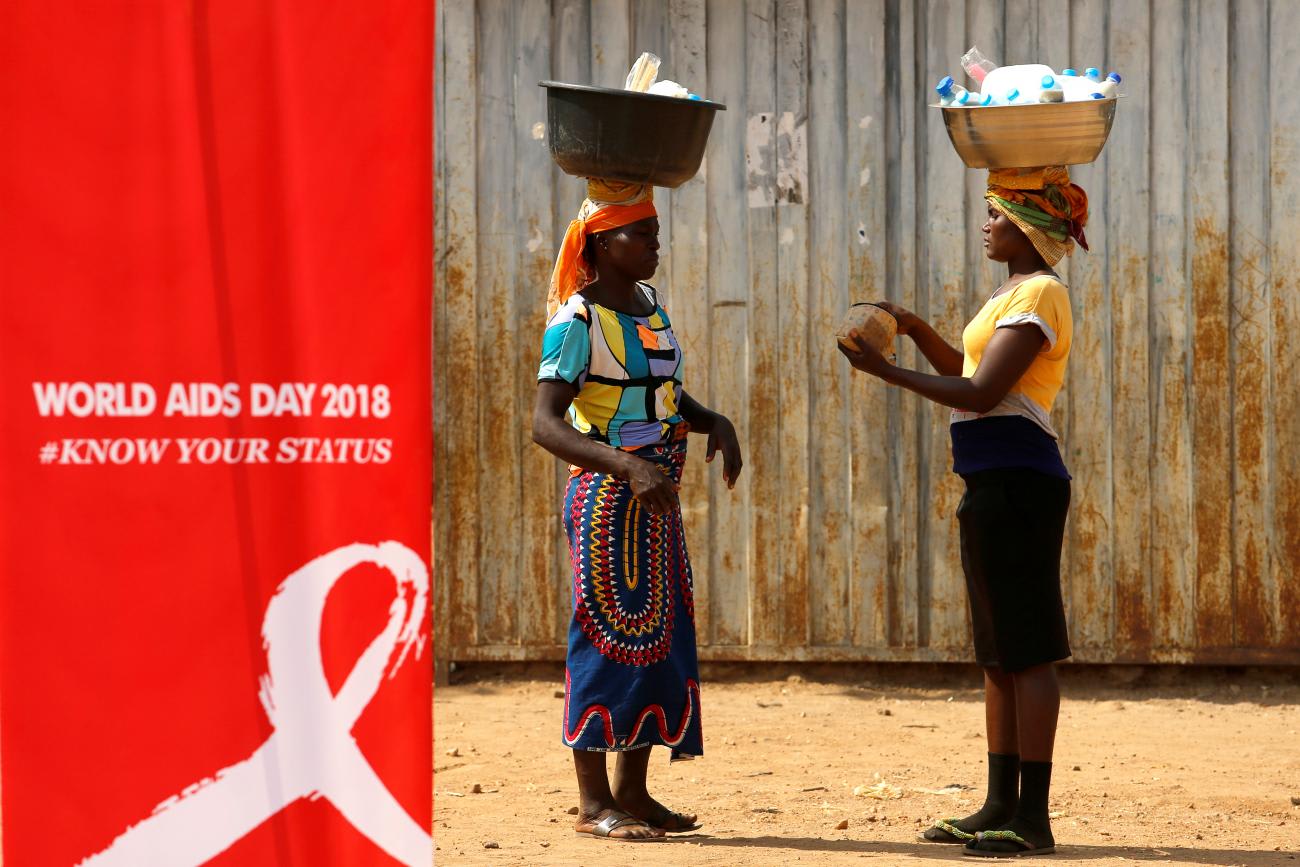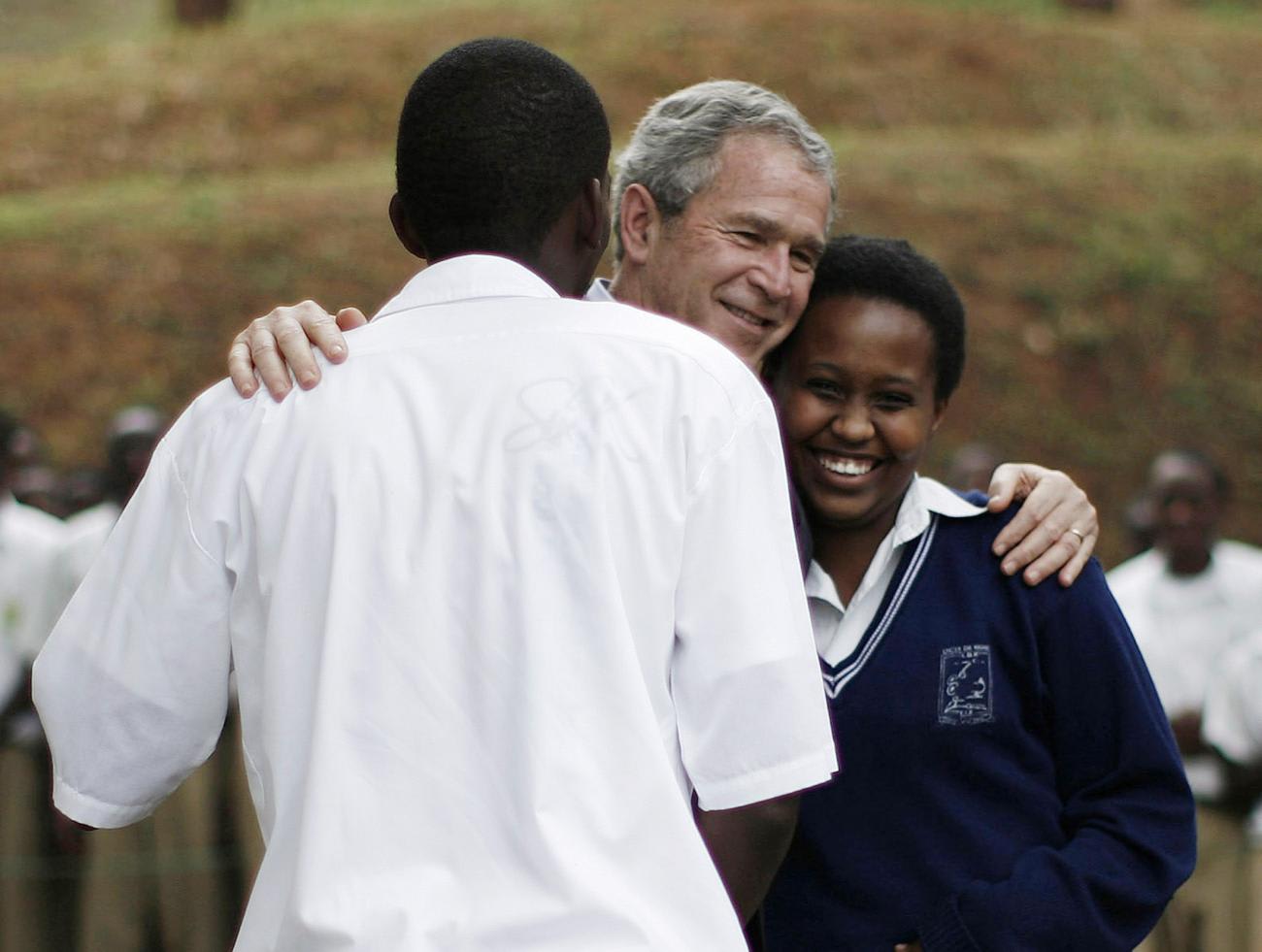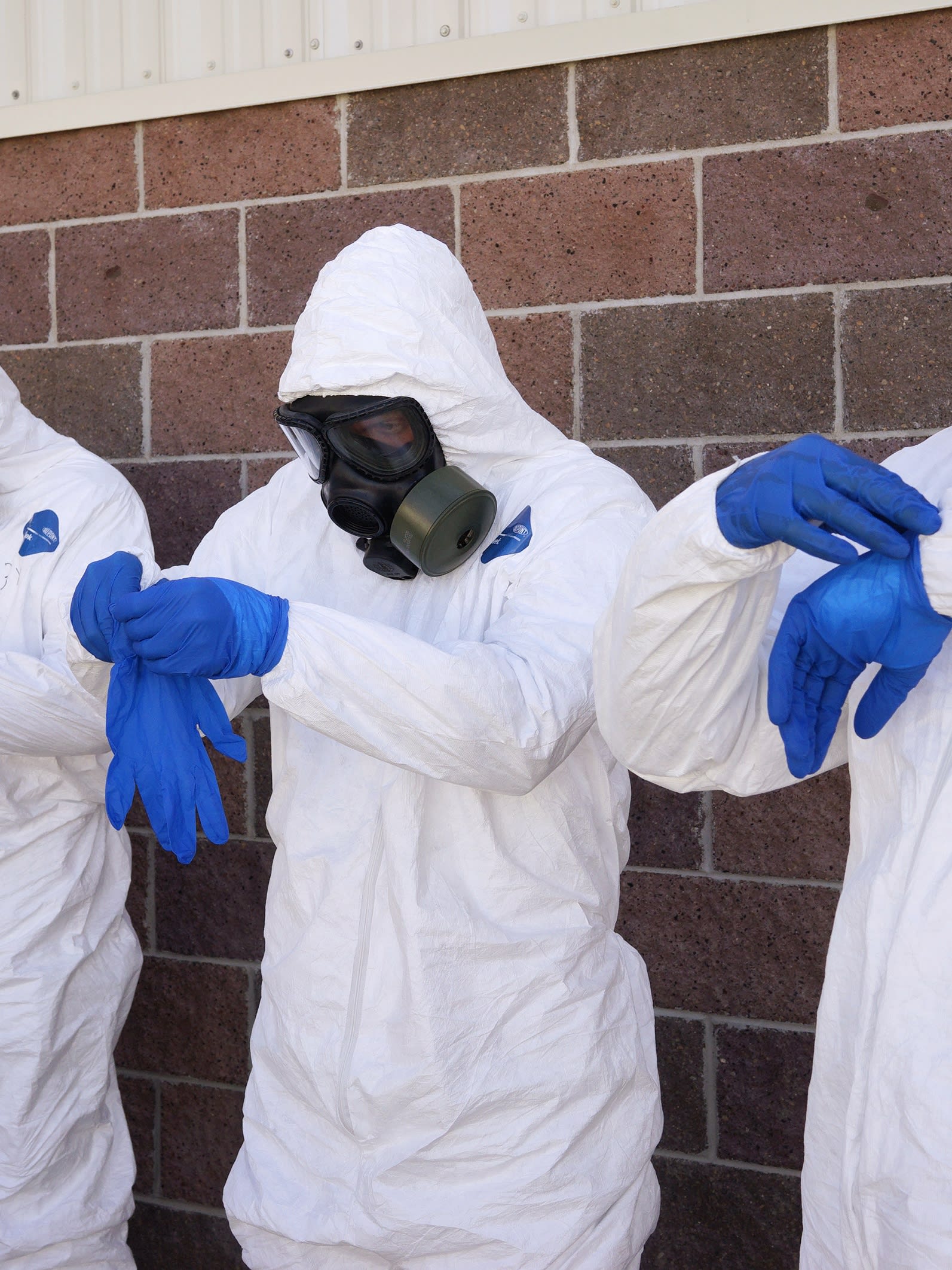Global health and democracy have been aims of U.S. foreign policy for some time. President Bill Clinton raised the AIDS calamity in the UN Security Council while shepherding the expansion of NATO based on democratic standards. President George W. Bush boldly launched the President's Emergency Plan for AIDS Relief (PEPFAR) at the same time as a "Freedom Agenda." President Joe Biden has renewed U.S. leadership to counter pandemics and the worldwide regression of democracy. The Biden administration is donating vaccines, calling for a pandemic preparedness and response financing facility, and hosting a summit of democracies in December—fulfilling a pledge Biden made a year and half before his inauguration.
As Amy Slipowitz's contribution to this series demonstrates, the COVID-19 pandemic's devastating impact on democracy worldwide has put the relationship between global health and democracy under intense pressure. The United States faces unprecedented challenges in making its foreign policy efforts on global health and democracy mutually reinforcing. To do so requires stepping back and weighing how health and democracy relate to each other, if and when they may be at odds, and whether they must be sequenced or balanced as goals.
"Democratic governance contributes to better health outcomes for certain causes of mortality"
Democracy Supports Good Health, Good Health Supports Democracy
According to a 2019 study in the Lancet, democratic governance contributes to better health outcomes for certain causes of mortality. For instance, the association is strong regarding tuberculosis, which kills more people than AIDS and malaria combined. Based on data covering 91 percent of the world's population, a 2015 study in the British Medical Journal found that the rule of law is a major determinant of important health indicators, such as maternal mortality and cardiovascular disease mortality, and it enables multiple socio-economic contributors to good health. Such evidence could support prioritizing democratic governance in foreign policy.
Conversely, health interventions and improved health care can enable rights, inclusion, and democratic participation. For example, when women have greater access to health care, especially sexual and reproductive care pertinent to timing and spacing of childbirth, they experience lower barriers to thriving economically and to participating in civic and political activities. A 2019 study in the Annals of Global Health found a robust association between investments by the Global Fund to Fight AIDS, Tuberculosis, and Malaria (Global Fund) and recipient countries' "improved control of corruption, government accountability, political freedoms, regulatory quality, and [the] rule of law." The evidence that health investments with features like the Global Fund's strengthen democracy might support prioritizing health investments in foreign policy.

Lingering Doubts about Health Assistance and Progress on Democracy
Still, does substantial U.S. and multilateral funding for health initiatives actually create disincentives for governments of low- and middle-income countries (LMICs) to pursue democratic reforms? Without robust means to monitor how health assistance is spent, an illiberal government could reallocate fungible resources to underwrite political surveillance, internal security forces, and priorities other than health.
In his 2010 memoir Decision Points, former President George W. Bush writes about PEPFAR's impact on HIV in Africa and on how it garnered leaders' good will—noting the case of Uganda. But Yoweri Museveni, who has been Uganda's president for 35 years and counting, signed in 2014 the Anti-Homosexuality Act, later overturned on a technicality. On his desk to sign is the Sexual Offenses Bill passed in 2019, which criminalizes LGBTQ+ persons and amplifies stigma by treating HIV-positive status as an "aggravating factor" in the punishment of LGBTQ+ persons and sex workers. These measures damage efforts to manage HIV as a public health threat to men having sex with men, transgender persons, and sex workers. Moreover, codifying discrimination and defining entire groups of people as illegal are gross human rights violations, period. Has $4.42 billion in PEPFAR aid to Uganda over 17 years decreased pressure to protect democratic and human rights norms?
"Rwanda is considered a great public health success story in the wake of the 1994 genocide"
Rwanda is considered a great public health success story in the wake of the 1994 genocide. For instance, new HIV infections declined from 13,000 in 2004 to 7,400 in 2018, and the number of people living with HIV who receive antiretroviral treatment rose from just 3 percent in 2004 to 83 percent by 2017. The Rwandan health system has improved markedly relative to its neighbors. As for democracy, Michela Wrong's rich book Do Not Disturb documents how President Paul Kagame has ruthlessly sidelined opponents, including, allegedly, sanctioning the assassination in South Africa of Patrick Karegeya, his former head of external intelligence. Kigame engineered both a new constitution lifting term limits on him until 2034 and his re-election in 2017 with 99 percent of the vote. Has U.S. investment in epidemic response and public health in Rwanda undercut U.S. leverage to facilitate change on human rights and democratic governance?
Toward Better Synergies between Health and Democracy in U.S. Foreign Policy
The Ugandan and Rwandan examples might suggest a clash between health and democracy, yet this perspective produces a false dichotomy. The most important question is not whether to invest in health but how. First, the United States should apply a lens of human rights and equity of access in its health investments in order to yield better results on health grounds—such as fashioning institutions for pandemic preparedness and response, as the Biden administration's diplomacy and proposed House and Senate legislations seek to do.

Second, in addition to its bilateral health programs with direct means for leverage, the United States should favor those multilateral institutions that integrate civil society voices, human rights, transparency, and accountability into their design and their demonstrated practice. For instance, the Global Fund reflects these qualities more than several multilateral entities, according to Publish What You Fund's independent assessment. For the United States to make progress toward defeating longstanding or emergent pandemics, the Global Fund is a good choice among current institutions, and relative to new institutions lacking a design or record of emphasizing openness and human rights.
Third, monitoring of the use of U.S. or multilateral resources to address public health goals is particularly essential in countries with illiberal leadership, whether in Africa or elsewhere—such as Myanmar after the February 2021 coup. To check whether resources go to intended goals rather than merely strengthening the ruler's grip, the best agents of accountability are domestic civil society watchdogs. Of course, illiberal governments work to curb independent civil society, but, wherever feasible, steadily empowering civil society to implement or monitor health programs could foster a virtuous cycle of improved health and provide greater voice for marginalized, neglected, or repressed populations.
"Empowering civil society to implement or monitor health programs could foster a virtuous cycle of improved health"
The United States can also meld health and democratic goals by investing in health programs that empower both disease-affected communities and community health workers. Such investments are just one example of how leveraging U.S. comparative advantages in medicine, innovation, and experience with PEPFAR and the President's Malaria Initiative could renew the standing of the U.S. model in the eyes of low- and middle-income countries, particularly in Africa. As China spreads its influence and undemocratic model—and corruption—through its Belt and Road Initiative, U.S. health investments grounded in rights, accountability, and transparency could foster legitimacy in a competition between governance models.
Generating momentum anew on both health and democratic norms deserves to be a U.S. foreign policy priority. Advancing these two norms requires subtle, un-siloed coordination possible only with high-level political will. It can be done. To overcome major challenges in both realms, it must be done.












